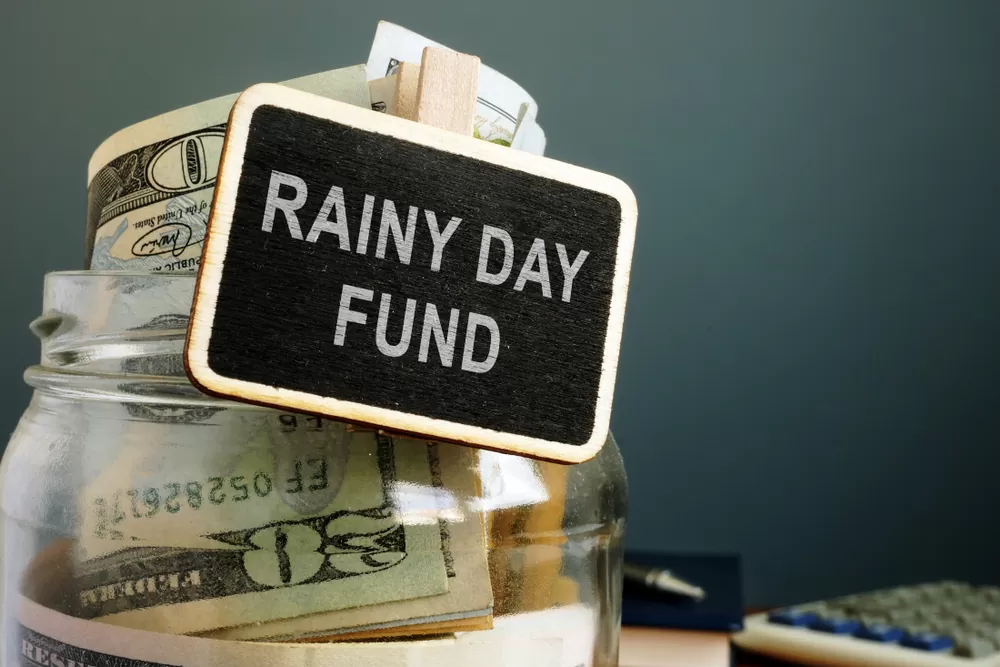
- Decide how to divide property and debts.
- Set up a joint fund for expenses.
- Build up a rainy-day account.
- Create a will.
- Consider filing for bankruptcy or other debt-relief options if necessary.
- If you’re under 65, go over your retirement accounts with your attorney to see what options are available to you.
- Create written financial goals and make them realistic.
- A financial checklist for divorce can help both sides prepare for the marriage transition.
- Conclusion
- Related Posts:
If you’re about to go through a divorce, it’s important to ensure your financial situation is in order before you start the conversations with your attorney. Although many divorces are amicable and do not involve conflicts over money issues, others can be more contentious. And even if you and your spouse agree on how to divide property and debts fairly, many things still need to be done so that both of you can move forward financially with peace of mind. Here’s a checklist of items that may help you get organized.
Decide how to divide property and debts.

Deciding how to divide property and debts before filing for divorce is important. That way, you can be sure that your interests in the property are protected, and you won’t have to make additional legal decisions later on.
You can take a 50/50 approach or divide it in another way. You may also choose to sell the property and split the proceeds.
Set up a joint fund for expenses.
Once you’ve decided to go the joint account route, there are a few steps you should take to set up your new bank account. First, ensure that both of you are on the same page about how much money will be deposited into this account monthly and for what purpose. For example, if one person earns more than the other but has no children to support and is willing to pay for all household expenses (including rent or mortgage). At the same time, they live together during divorce proceedings. Then they may want their ex-spouse to refrain from contributing significant money to the monthly joint account.
Set up two separate accounts: one that holds only assets owned before marriage (such as property) and another that holds assets acquired during the marriage (like retirement accounts). This way, it’ll be easier for both parties involved when it comes time to divide assets according to prenuptial agreements or court orders, even if one spouse still needs legal documentation regarding their share of marital property!
Build up a rainy-day account.

Filling up a rainy day account is a wise idea for anyone, but it’s especially important if you’re newly single. This is the money that’ll help cushion against unexpected expenses when your income drops or if you find yourself in need of extra cash before your next paycheck arrives. You can use an online savings account or one at a traditional bank to save up for whatever may come—it’s just important that the amount be enough to cover those unexpected expenses without breaking the bank.
- How much? A good rule of thumb: keep between 6 months and one year’s worth of living expenses in this account, depending on how much you earn and your debt. For example, if your monthly bills total $2,000 and your monthly income is $4,000 after taxes (or 10 per cent), then aim to save about $17K for emergencies (6x12x$2000).
- How do I avoid using this money? First, take your time with what qualifies as an emergency! If something comes up unexpectedly—like needing new tires after hitting potholes on the way home from work—you should dip into this fund; however, don’t treat every little thing like life or death (for example: buying lunch out every day).
Create a will.
- Create a will. A will is a legal document that details how you want your property distributed after your death and appoints an executor to fulfill your wishes. Having a will can ensure that all the people you care about and want to share in your estate are protected from legal complications or having their interests overlooked if there are no other legal documents (such as powers of attorney).
- Consider updating it periodically, for example, when there is a significant change in family structure or financial circumstances, such as marriage or divorce, birth/adoption of children, marriage breakdown, etc.
Consider filing for bankruptcy or other debt-relief options if necessary.
If you are considering bankruptcy, you have an important decision: filing Chapter 7 or Chapter 13. If your debts are primarily consumer and your income is under a certain threshold, you might qualify for Chapter 7 bankruptcy. This type of bankruptcy wipes out most of your debt and enables you to get back on track with a fresh financial start. However, it also has some drawbacks: there may be some repercussions from having filed in the past (like losing eligibility for housing), so it’s important to consult an attorney before moving forward.
If your income exceeds the standard thresholds for filing Chapter 7 (which is currently $12,475 per month if married), it may be better for you to file under Chapter 13 instead. A Chapter 13 plan establishes monthly payments over three years that help pay off any remaining balance on eligible debts. This allows homeowners who owe more than their home is worth to stay put until they can sell at a gain or refinance their mortgage balance as they repay what they owe over time.
If you’re under 65, go over your retirement accounts with your attorney to see what options are available to you.

If you’re under 65, go over your retirement accounts with your attorney to see what options are available to you. Decide whether or not to keep the accounts separate or combine them, and if they should continue as individual retirement accounts (IRAs) or roll into a new joint IRA. You’ll also want to evaluate how much money has been contributed and whether one person’s name should remain on the account or if both parties should be listed as owners.
Create written financial goals and make them realistic.
Next, you must write down your financial goals and ensure they’re realistic. Regarding divorce, “realistic” means that the goal should be something that can happen within a reasonable time frame. For example, you might dream of going on an around-the-world cruise next year. Still, unless you’re independently wealthy or have access to some pretty hefty credit card rewards points, that won’t happen—and even if it could, why would you want to wait until 2020?
- Make your financial goals measurable. If your goal is “get out of debt,” what does that mean? How much debt do I need to get rid of? How long will it take me? What happens when I’m done paying off my student loans or credit cards? By ensuring your goals are clear and specific about how much money needs to change hands for them to be achieved (or how many years it’ll take), you’ll know whether or not they’re realistic and achievable in the given timeframe.
A financial checklist for divorce can help both sides prepare for the marriage transition.
A financial checklist for divorce can help both sides prepare for the marriage transition. It will not only ensure you have all your financial documents in order but also allow you to be aware of any tax implications that may occur during this time.
It is important to remember that no matter what stage in your divorce proceedings, a checklist can help ease some of the stress associated with leaving one life behind and starting another.
Conclusion
If you’re going through a divorce and want to get more organized about your finances, this checklist can help. Use it as a way to keep track of your progress on these important financial issues as they arise. Contact an attorney or financial advisor for advice if you need help with any checklists.
Related Posts:
Financial Checklist For Divorce





















I genuinely enjoy looking through on this internet site, it holds superb posts. “A short saying oft contains much wisdom.” by Sophocles.
Thanks for the comments